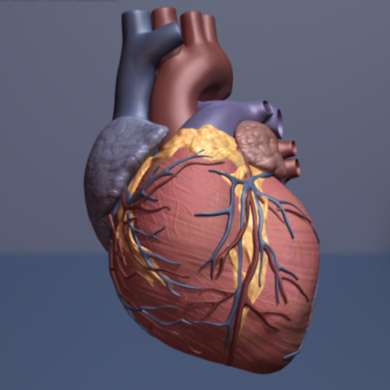This article has been reviewed according to Science X's editorial process and policies. Editors have highlighted the following attributes while ensuring the content's credibility:
fact-checked
trusted source
proofread
Hot flashes linked with risk factors for cardiovascular disease

Hot flashes have long been known to be linked to a number of adverse health effects. Emerging data suggests an association between them and cardiovascular disease.
A new study, presented during the 2023 Annual Meeting of The Menopause Society in Philadelphia September 27–30, is the first to link physiologically assessed hot flashes with heightened systemic inflammation which is a risk factor for heart disease.
The results presented are part of a presentation entitled "Physiologically measured vasomotor symptoms and systemic inflammation among midlife women."
Vasomotor symptoms, more often referred to as hot flashes, are one of the most common symptoms identified during the menopause transition, with roughly 70% of midlife women reporting them. Not only do they interfere with a woman's quality of life, but they have also been related to physical health risks, such as cardiovascular disease.
Previous research linking hot flashes with heightened systemic inflammation has relied on self-reporting to document the frequency and severity of the hot flashes. These self-reports of hot flashes are limited as they ask women to recall hot flashes over weeks or longer and may be subject to memory or reporting biases.
A new study that included 276 participants from the MsHeart study, however, utilized sternal skin conductance to physiologically assess hot flashes and tested whether more frequent physiologically assessed hot flashes are associated with heightened system inflammation.
While large increases in inflammatory markers indicate acute infection or clinical disease, small and sustained increases of markers of inflammation that are in the physiologically normal range are predictive of later disease risk. For example, small and/or sustained increases in inflammatory biomarkers (conceptualized as heightened levels of systemic inflammation) have been related to plaque development and atherosclerotic cardiovascular disease.
Based on the results of the study, the researchers concluded that physiologically assessed hot flashes during wake were associated with higher levels of a high-sensitivity C-reactive protein, even after adjusting for potential explanatory factors such as age, education, race/ethnicity, body mass index, and estradiol.
"This is the first study to examine physiologically measured hot flashes in relation to inflammation and adds evidence to a growing body of literature suggesting that hot flashes may signify underlying vascular risk and indicate women who warrant focused cardiovascular disease prevention efforts," says Mary Carson, MS, lead author from the Department of Psychology at the University of Pittsburgh.
"Since heart disease is the leading cause of death for women in the US, studies like these are especially valuable," adds Dr. Stephanie Faubion, medical director of The Menopause Society. "Health care professionals need to ask their patients about their hot flash experiences as they not only interfere with their quality of life but may also indicate other risk factors."


















